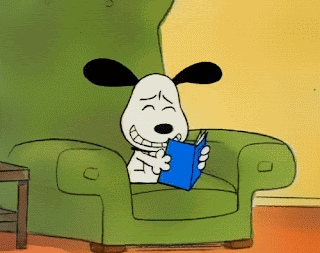Prior
to this class I was under the impression that the teaching and monitoring of
literacy skills was solely the job of the language arts teacher. I would say to
myself that I would never grade for grammar or monitor for close reading
strategies as a social studies teacher because that wasn’t part of my
curriculum, but now I have a different perspective. The use of literature and
skills needed to comprehend and apply what is being read are just as important
in social studies classrooms as they are in language arts classrooms… I mean
for crying out loud most of social studies is solely made up of reading and
writing. The trick is to strategically use literacy practice in a way that doesn’t
overwhelm the content you are trying to teach, and I have thought of a couple
of ways to do that derived from what we have done in class.
One
of the first things that really impacted me while reading Subjects Matter was
how lacking many textbooks can really be. As students we just generally accept
that what is in the book is not just what we need to know, but that its
factually correct without any bias. This is something that, as a college student
and as a future educator, I have learned to be wildly untrue. Not only that,
but students just do not do the reading, at least in the depth we want them to by
using any literary techniques whatsoever. While I never intended to assign long
textbook readings outside of class in the first place, now I am hesitant to put
much stock in the textbooks at all, at least without extensively and personally
vetting them first. I think for me a better alternative would be to compile
smaller reading sets that really home in on what I want my students to know in
addition to what the standards state they need to know for the exam. In those
smaller reading sets I would include alternative literature such as images, podcasts,
videos, poetry, anything that might catch my students’ attention a little
better than just assigning reading from a textbook would. I would encourage
them to apply as many before, during, and after reading strategies that fit the
medium as possible, but I have not decided how I would want to go about making
it mandatory to annotate or not. I think right now I am leaning toward using it
as an extra credit opportunity to add x amount of points to the exam score for
showing me that the reading was engaged with. Either way I have been influenced
to learn further away from textbooks than I already was, given the fact that I myself,
a believer in education, seldom read textbook assignments to the extent that I
know I should.
Another
important thing I learned from this class was how beneficial cross-curricular
learning can be especially in a co-teaching setting. While we didn’t entirely
do an activity around this, we talked a lot about it with the lesson plan
assignment(s) and the book/journal clubs. While I don’t see myself using a book
club in a social studies or science classroom (unless we have time), I definitely
want to try and pair with another teacher to use book clubs in their language
arts classroom as a tag team project when learning about content related to the
chosen book or books. For instance, if I were to be teaching about the Great
Depression, I would love to see the language arts teacher on my team assign a
book such as Esperanza Rising, or other Historical Fiction novels set during
the Great Depression. This way my students gain factual background knowledge
they can apply to the novel they are reading, and personal firsthand stories of
what it was like during the Great Depression to give them a more personal
understanding of the era. This way my students have an opportunity to get as
well rounded of a grasp of the topic as possible while also offering more unique
teaching strategies.
Overall this class really allowed me to see the value in literacy education in every
subject, not just language arts, not only for knowledge of literacy skills but also
to give students the tools needed to fully understand any text they are
assigned. I look forward to incorporating literacy into my science or social
studies classroom!




Assignment: 20/20
ReplyDeleteCoursework: 70/80
Final Grade: 90/100
You wrote, "The trick is to strategically use literacy practice in a way that doesn’t overwhelm the content you are trying to teach." This is well-put. I am impressed with how you are synthesizing your coursework here as UGA and thinking forward to your career.
You also wrote, "I would include alternative literature such as images, podcasts, videos, poetry, anything that might catch my students’ attention a little better than just assigning reading from a textbook would. I would encourage them to apply as many before, during, and after reading strategies that fit the medium as possible, but I have not decided how I would want to go about making it mandatory to annotate or not." I'm glad that you view some of these strategies as useful. I also love that you are still questioning. The best thing you can do is try lots of different things in lots of different situations and see what sticks with your students.
Georganna, I know that you had some struggles outside of class this semester, and you weathered them spectacularly. You additions to lass were always thoughtful and poignant. You are going to be a good teacher. Never stop experimenting with new strategies.